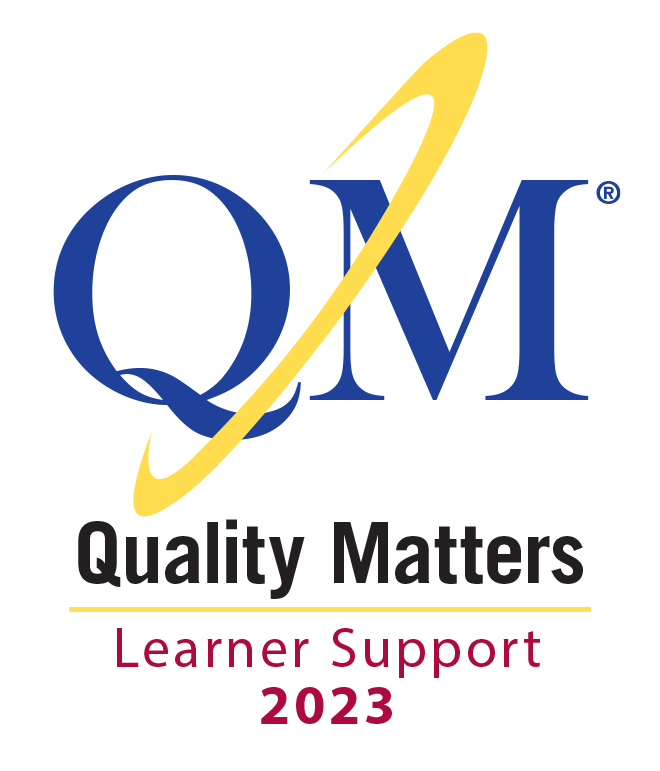Questions? Request Information
Degree Completion Journey
Earn your Master of Accountancy online from the University of Arizona Global Campus. Learn to apply the principles of accounting to solve real-world problems. Designed for professionals, this graduate program develops your analytical and technical skills in accounting. You can also add a specialization to your master’s degree to provide further focus to your studies.
To be awarded the Master of Accountancy degree, all students will complete 16 courses worth a total of 48 semester credits with a 3.0 minimum grade point average. The first 13 are core courses, followed by three courses that correspond to the specialization of your choice.
Students who submit official transcripts indicating that they have earned a Bachelor’s degree in Business, Business Administration, Accounting, Finance, Economics, or have successfully completed undergraduate coursework in Accounting or Finance with a grade of “C” or higher, or graduate coursework in Accounting or Finance with a grade of “B” or higher will be exempt from the requirement to take BUS 591 Financial Accounting & Analysis.
Students who submit official transcripts indicating that they successfully completed undergraduate coursework in Statistics, Business Statistics, or Quantitative Methods with a grade of “C” or higher or graduate coursework in Statistics, Business Statistics, or Quantitative Methods with a grade of “B” or higher will be exempt from the requirement to take MAT 540 Statistical Concepts for Research.
Students who submit official transcripts indicating that they have earned a Bachelor’s degree in Accounting or Finance or have successfully completed undergraduate coursework in Accounting or Finance with a grade of “C” or higher, or graduate coursework in Accounting or Finance with a grade of “B” or higher will be exempt from the requirement to take BUS 590 General Cost.
Students who waive MAT 540, BUS 591, and BUS 590 are required to take 39 total program credits in order to meet graduation requirements.
This program is not designed to meet the state educational requirements for a specific professional license or certification in any state. Students seeking licensure or certification in a particular profession shall carefully research the requirements prior to enrollment and regularly review the requirements as they are subject to change. Requirements vary by state. The University of Arizona Global Campus does not guarantee that any professional organization will accept a graduate’s application to sit for any exam for the purpose of professional certification. Further, a criminal record may prevent an applicant from obtaining licensure, certification, or employment in their field of study.
This program is not designed to meet the educational requirements for the Certified Public Accountant (CPA) examination. Students seeking a CPA license shall carefully research the requirements provided by state boards of accountancy. A list of state boards of accountancy is available here: https://nasba.org/stateboards/
This program is not designed to meet the educational requirements for the Certified Management Accountant (CMA) certification exam. Students seeking a CMA certification shall carefully research the requirements provided by the Institute of Management Accountants(www.imanet.org).
California Students: This program alone does not lead to licensure. In order to sit for the Certified Public Account (CPA) examination, applicants must provide the California Board of Accountancy evidence of a baccalaureate or higher degree, a total of 150 semester units, including a minimum of 24 semester units of accounting subjects, 24 semester units of business related subjects, a minimum of 20 semester units of accounting study, and 10 semester units of ethics study. UAGC students who transfer in general education credits may need to determine that they are meeting the requirements during their program of study. The Ethics requirement is also not met in the undergraduate program at the University of Arizona Global Campus. Applicants must provide the California Board of Accountancy (CBA) with satisfactory evidence of having completed a minimum of 12 months of general accounting experience, a CBA-accepted ethics examination that must be passed within two years of submitting the CPA application, a criminal history background check by fingerprint via a Live Scan service and the completion of a Criminal Conviction Disclosure Form to disclose any misdemeanor or felony convictions. For additional details regarding the CA requirements for obtaining a CPA license, please visit: https://www.dca.ca.gov/cba/applicants/ed-requirements.shtml.
Missouri Students: Prospective students who wish to sit for the Certified Public Accountant (CPA) examination in the State of Missouri shall demonstrate completion of at least 150 semester credit hours of college education and earned a baccalaureate degree and/or graduate degree from an accredited college or university approved by the Missouri State Board of Accountancy. The 150 semester credit hours shall include 120 semester hours of college education at an accredited college or university recognized by the board, with an accounting concentration or equivalent as determined by the board. The concentration in accounting shall include a total of at least forty-eight (48) semester hours, including a minimum of twenty-four (24) semester hours of accounting and twenty-four (24) semester hours of business courses.
Texas Students: Prospective students who wish to sit for the Certified Public Accountant (CPA) examination in the State of Texas meet the following qualifications to take the CPA exam:
- Hold a baccalaureate or higher degree from a board-recognized United States college or university, or an equivalent degree as determined by board rule from an institution of higher education in another country.
- Complete 120 semester hours or quarter-hour equivalents of college credit.
- Complete 21 semester hours or quarter-hour equivalents of upper level accounting courses from a board-recognized college or university.
- Complete 24 semester hours or quarter-hour equivalents of upper level related business courses. Within the coursework two-semester hours of accounting or business communications are required.
- Complete the electronic fingerprint process for a background check of the criminal history files of the Texas Department of Public Safety (DPS) and the Federal Bureau of Investigation (FBI).
Certain degree programs may not be available in all states.
The Online Teaching Support Certification recognizes programs that require all online faculty to undergo training in best practices for online course delivery, provide faculty with ongoing pedagogical support, encourage faculty professional development to increase their knowledge and skill in online teaching, emphasize instructor availability and feedback to learners, and collect and use feedback from learners to improve online teaching. Learn More

The Online Learner Support Certification recognizes programs that provide all the critical student and academic services needed for learner success and use learner feedback to continuously improve those services.

Customize Your Accountancy Degree with UAGC Specializations
Delve into other areas of accounting with a specialization for your accountancy master’s program. You can look at how to identify, detect, and prevent accounting fraud or look into financial accounting and reporting. Your accounting specialization allows you to dig deeper into a topic that you are interested in and can help shape your career path. A specialization is required for graduation and consists of three 3-credit courses.
-
Develop and strengthen your organizational and leadership skills with a specialization in Accounting. When you add the Accounting specialization to your degree program, you will be able to supplement your learning with courses designed to dive deeper into topics such as advanced accounting, auditing, tax research, and foreign currency transaction reporting. Learn more about the individual classes required to add a specialization in accounting to your degree program. Your specialization may require prerequisite course work. Please talk to your advisor for more information.
Careers Related to the Master of Accountancy


U.S. Department of Labor data regarding salary ranges and job growth projections are national in nature and do not guarantee employment, any specific salary, or job growth. Also, national long-term projections may not reflect local and/or short-term economic or job conditions. Top Skills are provided via Lightcast job postings data and may not align with UAGC program learning outcomes. UAGC programs are not designed to meet the state educational requirements for a specific professional license or certification in any state. UAGC does not guarantee employment placement, any specific salary from employment, or career advancement.
Meet Our Faculty
Other Degrees That May Interest You
Check out other degree programs that suit a variety of interests and may enhance a wide scope of career opportunities at UAGC. Discover similar programs to find the right path for you.






